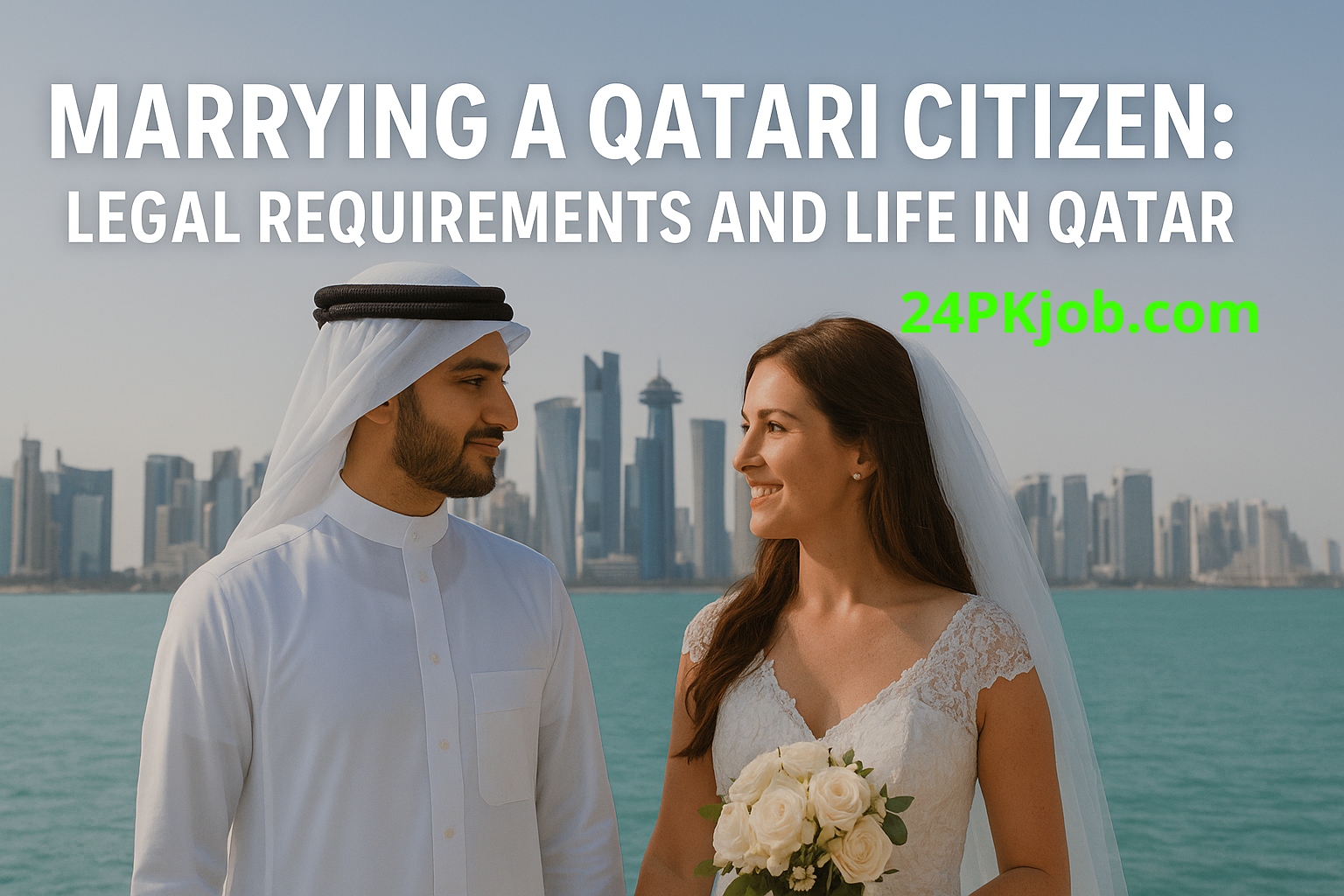Marrying a Qatari citizen can open the doors to a unique blend of cultural integration, legal privileges, and social responsibilities. Qatar, a rapidly modernizing yet traditionally rich Gulf country, has specific laws and cultural norms governing marriage, especially when it involves a foreigner and a Qatari national. Understanding these legal requirements and what life entails after marriage is crucial for anyone considering this significant step.
Legal Requirements for Marrying a Qatari Citizen
- Approval from the Qatari Government
Marriage to a Qatari citizen requires official approval from the Ministry of Interior or the relevant governmental authority. This process ensures that the union complies with national laws and cultural values. - Eligibility and Documentation
- For the foreign spouse: Valid passport, residency permit, birth certificate, and a certificate of no impediment to marriage (proof that they are single or legally divorced).
- For the Qatari spouse: Valid Qatari ID and family registry.
- Age Restrictions
Both parties must meet the minimum legal age for marriage, typically 18 for males and 16 for females, though exceptions exist under specific circumstances with judicial consent. - Religious and Cultural Considerations
Marriages in Qatar usually follow Islamic principles. Non-Muslims marrying Qataris may need to convert to Islam, especially if the groom is Qatari. Religious endorsement from an Islamic authority is generally required. - Marriage Contract and Registration
The marriage contract must be signed in the presence of a Qatari judge or an authorized representative. This contract outlines rights, responsibilities, and financial agreements. After signing, the marriage is officially registered with the Sharia court, making it legally binding. - Medical Tests
Both parties are often required to undergo premarital medical screenings for hereditary and communicable diseases, a mandatory step to promote public health.
Life After Marriage in Qatar
- Residency and Citizenship
Marriage to a Qatari does not automatically grant citizenship to the foreign spouse. However, the spouse may apply for residency permits and potentially naturalization after several years, contingent upon strict legal requirements. Residency allows the foreign spouse to live and work in Qatar legally. - Cultural Adaptation
Qatar is a conservative society with deeply rooted traditions and social norms. Foreign spouses need to respect local customs, dress modestly, and abide by laws related to public behavior. Family is central to Qatari society, and integrating with the extended family is often expected. - Employment and Social Life
Foreign spouses with residency can seek employment but must comply with Qatar’s labor laws, including sponsorship requirements. Social life in Qatar is vibrant but often structured around family gatherings, community events, and religious occasions. - Rights and Obligations
The marriage contract defines spousal rights, including financial maintenance and child custody. Qatari law places a strong emphasis on protecting family integrity, but foreign spouses should be aware of the legal nuances in cases of divorce or separation. - Raising Children
Children born to a Qatari father usually obtain Qatari nationality automatically, which confers various social and educational benefits. Families often prioritize religious and cultural education alongside modern schooling.
Challenges and Opportunities
While marrying a Qatari citizen can bring numerous benefits, including a deep connection to Qatari culture and potential long-term residency, challenges exist. Language barriers, cultural differences, and legal complexities require patience and openness. However, Qatar’s progressive development in infrastructure, healthcare, and education makes it an attractive place for families to thrive.
Conclusion
Marrying a Qatari citizen is more than a legal contract—it is an entry into a rich cultural heritage and a new social landscape. By understanding the legal steps and embracing the cultural lifestyle, foreign spouses can build fulfilling lives in Qatar, enjoying both traditional values and modern opportunities.
If you’re considering this life-changing decision, consulting with legal experts and cultural advisors in Qatar will ensure a smooth transition and a happy future together.



